- News
- Reviews
- Bikes
- Accessories
- Accessories - misc
- Computer mounts
- Bags
- Bar ends
- Bike bags & cases
- Bottle cages
- Bottles
- Cameras
- Car racks
- Child seats
- Computers
- Glasses
- GPS units
- Helmets
- Lights - front
- Lights - rear
- Lights - sets
- Locks
- Mirrors
- Mudguards
- Racks
- Pumps & CO2 inflators
- Puncture kits
- Reflectives
- Smart watches
- Stands and racks
- Trailers
- Clothing
- Components
- Bar tape & grips
- Bottom brackets
- Brake & gear cables
- Brake & STI levers
- Brake pads & spares
- Brakes
- Cassettes & freewheels
- Chains
- Chainsets & chainrings
- Derailleurs - front
- Derailleurs - rear
- Forks
- Gear levers & shifters
- Groupsets
- Handlebars & extensions
- Headsets
- Hubs
- Inner tubes
- Pedals
- Quick releases & skewers
- Saddles
- Seatposts
- Stems
- Wheels
- Tyres
- Health, fitness and nutrition
- Tools and workshop
- Miscellaneous
- Buyers Guides
- Features
- Forum
- Recommends
- Podcast
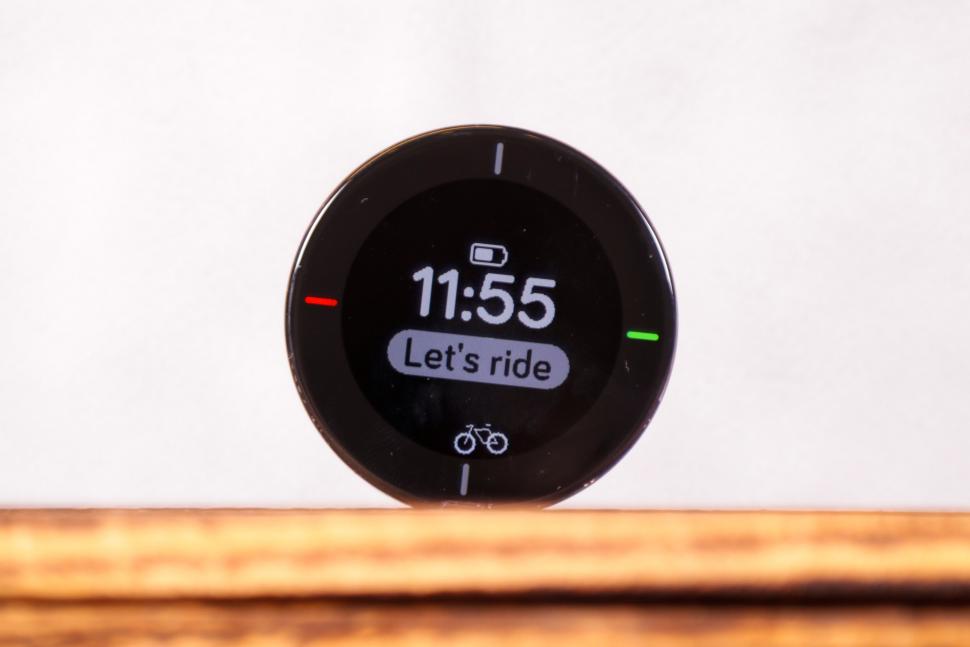 Beeline Velo 2 Cycling Computer
Beeline Velo 2 Cycling Computer£79.99
VERDICT:
Simple-to-follow navigation computer that is small, sleek and well priced
Easy to use
Small
Can't connect sensors
App doesn't give elevations – yet
Weight:
28g
Contact:
At road.cc every product is thoroughly tested for as long as it takes to get a proper insight into how well it works. Our reviewers are experienced cyclists that we trust to be objective. While we strive to ensure that opinions expressed are backed up by facts, reviews are by their nature an informed opinion, not a definitive verdict. We don't intentionally try to break anything (except locks) but we do try to look for weak points in any design. The overall score is not just an average of the other scores: it reflects both a product's function and value – with value determined by how a product compares with items of similar spec, quality, and price.
What the road.cc scores meanGood scores are more common than bad, because fortunately good products are more common than bad.
- Exceptional
- Excellent
- Very Good
- Good
- Quite good
- Average
- Not so good
- Poor
- Bad
- Appalling
The Beeline Velo 2 cycling computer is simple and easy to use, with a really intuitive interface both on the unit and in the app. It's light and takes up little space on the handlebar, and the price is pretty reasonable too.
I tested out the original Beeline several years ago and was impressed by that unit, but a few little quirks needed to be ironed out, so I was interested to see how the second iteration compared.
> Buy now: Beeline Velo 2 for £79.99 from Beeline
So just what is the Beeline Velo? Well, it's a very small sat nav specifically for bikes (you can also get a motorbike version). It has some fundamental computer functions, but these are all limited to the gyroscopes within the device and what your phone can tell it, which is essentially GPS.
It is much more basic than something like a Garmin or Hammerhead. You get the route with upcoming turns, ETA, speed, and time so far. It's not a computer for performance riding, it's very much a device to get you from A to B.
I found it handy to use alongside my Garmin, with the Beeline on my stem and my Garmin on an out-front mount, because although the Garmin offers navigation as well, having both meant I could see my stats and full turn-by-turn navigation at a glance – and the Velo 2's size means it's no hindrance.
It's a tiny thing, weighing just 28g, and about the size of two stacked poker chips. It mounts to what is basically a four-way Garmin mount, locking in place with an eighth turn rather than the quarter turn needed for a Garmin or Wahoo. Although I have never had a Garmin or Wahoo fly off, having four points of contact rather than two means even with the Velo 2's low weight it's held very securely wherever I attached it.
Alongside the unit itself Beeline also sent us the Beeline Carry Case, which is a hardshell zippable case with a small net pocket inside. It's useful and can easily be hung on a bag with the attached carabiner. It's handy for a unit this small, making it easier to find at the bottom of a bag as well as stopping it from getting damaged.
The app
Without the phone app the unit itself is basically a black disc with a fun animation of a bike that rolls around the sides as you tilt it. The app is where the action happens, where all the settings are chosen and how you tell the computer where you want to go, and the interface and functionality is very impressive.
You choose from a number of navigation options with a single press of a button – you can go to a 'favourite place' such as home or work, follow a Strava route, or plan your own.
If planning your own it gives you three options, quick, balanced, or quiet, so you can choose speed, tranquillity or a good mix.
> GPS cycle route planning made easy – how to plan and follow a bike route
One minor complaint is that when you plan a route it doesn't give you any elevation data, so if you want to smash out some steep hills or go for a gentle flat run you won't necessarily know if the route suits your needs. That is something that's being worked on, Beeline tells us, and will be released soon.
You can see all of your rides in the 'journeys' section, and you can automatically upload your rides to Strava too, which is a nice touch.
The unit
The Velo 2 is a cinch to use, with a clear display that auto-adjusts the brightness based on the ambient light. The lines of travel are coherent and clear, making it really easy to see at a glance.
It gives a notification just before you need to turn, which is particularly useful if you've been on a long straight, say, and you're not really paying attention to the unit...
The turn-by-turn navigation works effectively and reroutes quickly enough that the couple of times I did miss a turning I saw afterwards that I'd hardly deviated from the original route.
You can also use the Velo 2 in a more 'organic' way, with turn-by-turn navigation off, and instead having it just point you in the right direction. This is what the original Beeline did, which wasn't ideal for London, but for use out in the country when you aren't trying to get somewhere as quickly as possible, it makes a nice way to explore. With the rise of gravel biking, this mode is even more appealing, enabling you to really get off the beaten track without worrying about becoming completely lost.
To flick through the screens and options you just press the sides of the unit, there are no buttons. This not only gives it a clean and simple look, it also means maximum space for the display. You can see where to press with the four light dashes around the edge and on-screen prompts for things like ending or pausing your ride.
It was fairly accurate in terms of recording my speed compared with my Garmin, though it doesn't pick up changes in pace as quickly, which is unsurprising given that it's using my phone's GPS rather than the dedicated speed sensor for the Garmin. You can't connect any ANT+ sensors to the Beeline, so speed, cadence and heart rate monitors are not an option.
Battery
Battery life is very good – I found that about an hour's use would use 5-10%, so the 11 hours claimed time is about right. Whether I was using it for a long weekend ride or a quick blast within London, I was confident it would get me back.
In the first couple of weeks I did have a problem with it draining the battery if I turned it off and left it for two or three days, but an over-the-air update has fixed the issue and I haven't had any problems with it since.
It charges using a waterproof USB-C charging port and can be fast charged to 30% in around 20 minutes if you need a quick boost before setting off. From empty it would charge to full in around 90 minutes, which is pretty good too.
Value
The Velo 2's rrp of £79.99 seems very reasonable considering how useful it is. There are a few bike computers around this price that cater to navigation, but surprisingly few that show your route on a map and with genuine turn-by-turn navigation. The Sigma Rox 2.0, for instance, at £69.99 has turn-by-turn navigation, but it's done through a relatively rudimentary arrow without a map (read more about it here).
The Bryton Rider 420E, up to £134.49 since Stu reviewed it, offers ANT+ connectivity and a well-designed app, but it doesn't have the same focus on navigation, with no turn-by-turn navigation, and the screen isn't nearly as high quality.
> Buyer’s Guide: 10 of the best cheap GPS cycling computers
Garmin's new Edge Explore 2 offers similar navigation options but additional connectivity and more features but costs £250. It's much bigger and more imposing on the handlebar, too.
Overall
I have been impressed by the Beeline Velo 2. The only minor issue is that it doesn't show the elevation for your route – yet (it's being worked on, says Beeline), otherwise the turn-by-turn navigation is very effective and easy to follow, and the battery life is great.
It lacks some of the connectivity and functionality of more expensive options like the Garmin Edge, but for navigation only or as an additional navigation unit, it works impressively well.
Verdict
Simple-to-follow navigation computer that is small, sleek and well priced
road.cc test report
Make and model: Beeline Velo 2 Cycling Computer
Size tested: 32.4mm
Tell us what the product is for and who it's aimed at. What do the manufacturers say about it? How does that compare to your own feelings about it?
Beeline says:
Intuitive compact cycle computer for better rides. Navigate effortlessly along fantastic routes in all weather conditions, with essential tracking functionality.
Strava compatible: access routes and easily upload rides.
Worldwide navigation coverage, with Beeline Smart Routing available in selected regions .
Over 11-hours ride time and approx. 18-months standby time.
Top-rated cycling app and industry-leading customer support .
Not compatible with motorcycle routing.
The perfect companion for cycling, whether you enjoy challenging new rides in the countryside with friends, keeping track of your adventures on routes you know, or both.
Velo 2 and the Beeline app provide easy route planning, intuitive bike navigation, essential journey tracking metrics and Strava compatibility.
Tell us some more about the technical aspects of the product?
From Beeline:
Phone requirements
iPhone running iOS 13.0 and above
or
Android phone with Google Play running 8.0 Oreo and above
Bluetooth 4.0 capability required
Battery
Type: Rechargeable Lithium Polymer
Capacity: 400 mAh
Battery life in use: 11 hours
Battery life in standby: 18 months
Charging: Waterproof USB-C
Display
Screen technology: LCD IPS circular display with LED backlight
Resolution: 240 x 240 px (266 PPI)
Active area diameter: 32.4 mm (1.28 inch)
Display lens material: PMMA with anti-scratch coating
Sensors
Accelerometer
Gyroscope
Magnetometer
Ambient light sensor for automatic brightness adjustment
Connectivity:
Bluetooth 4.0 low energy
Materials
ABS
PMMA
Polycarbonate
TPU
Interface
4x physical RockerTop TM buttons.
Water and particle resistance
Weather-sealed, water and dust resistant.
Size and weight
46.4 mm (1.82 inches) diameter, 17.3mm (0.68 inches) deep
25 grams (0.8 oz)
Rate the product for quality of construction:
8/10
Well made with an effective mount combined with an innovative design for buttons.
Rate the product for performance:
8/10
Easy to follow turn-by-turn directions combined with a clear screen and simple to set up app.
Rate the product for durability:
8/10
It survived a couple of drops and with its water and dust resistance is likely to last a while.
Rate the product for value:
7/10
It's well priced for a navigation unit.
Tell us how the product performed overall when used for its designed purpose
Very well, it is a bike computer designed for navigation and that is exactly what it does.
Tell us what you particularly liked about the product
The design – it's sleek and small, as well as functional.
Tell us what you particularly disliked about the product
The lack of elevation on the route mapping. Though that's being worked on.
How does the price compare to that of similar products in the market, including ones recently tested on road.cc?
For a navigation device it's well priced. The Sigma Rox 2.0 is £69.99 but though it has turn-by-turn navigation, it's done through a relatively rudimentary arrow without a map. The Bryton Rider 420E is £134.49 and offers ANT+ connectivity and a well-designed app, but it doesn't have the same focus on navigation, with no turn-by-turn navigation, and the screen isn't nearly as high quality. Garmin's new Edge Explore 2 offers similar navigation options but additional connectivity and more features but costs £250.
Did you enjoy using the product? Yes
Would you consider buying the product? Yes
Would you recommend the product to a friend? Yes
Use this box to explain your overall score
It's very good: a small and easy-to-use bike computer that works very well for navigation, with an impressive interface, battery life, and accompanying app to boot.
About the tester
Age: 35
I usually ride: CAAD13 My best bike is: Cannondale Supersix Evo
I've been riding for: 10-20 years I ride: Every day I would class myself as: Expert
I regularly do the following types of riding: commuting, club rides, sportives, general fitness riding, fixed/singlespeed,
George is the host of the road.cc podcast and has been writing for road.cc since 2014. He has reviewed everything from a saddle with a shark fin through to a set of glasses with a HUD and everything in between.
Although, ironically, spending more time writing and talking about cycling than on the bike nowadays, he still manages to do a couple of decent rides every week on his ever changing number of bikes.
Latest Comments
- Zebra 2 sec ago
One thing which will influence me next time I buy new wheels is the noise which the freehub makes - how loud it is. I have tinitus and am quite...
- David9694 48 min 18 sec ago
More notice needed for Remembrance Sunday road closures...
- chrisonabike 1 hour 29 min ago
This is an impressive new way of avoiding work by the police! Several crimes here (eg. phone use) - so is the new game "if we can identify *one*...
- HeadDown 1 hour 52 min ago
Which explains a lot. I reckon the standard of driving in the UK has noticeably decreased in the last 5-10 years. A host of factors no doubt, but I...
- Keykey1985 2 hours 27 min ago
He wasn't brake-checking me, he was trying to get me to stop. Nothing good would have come from me stopping.
- PRSboy 2 hours 45 min ago
It was designed around 28mm tyres but there's lots of clearance and could certainly take bigger tyres.
- Cugel 2 hours 48 min ago
A dinosaur version is shurely for the kiddies. Myself I'd like The Hindenburg. There may be The Freisian, filled with methane rather than hydrogen,...
- Rendel Harris 3 hours 2 min ago
When I see SLOW HORSES I always think ah, so this is where the ones I bet on are kept...
- chrisonabike 3 hours 43 min ago
No great mystery in either case, surely? Both US politician and the motor trade say "choose us and your life will be better and easier!" And other...
- stonojnr 5 hours 55 min ago
theres an attitude I encounter alot locally, and demonstrated in bucket loads by drivers on my commute home tonight, that cyclists shouldnt be on...
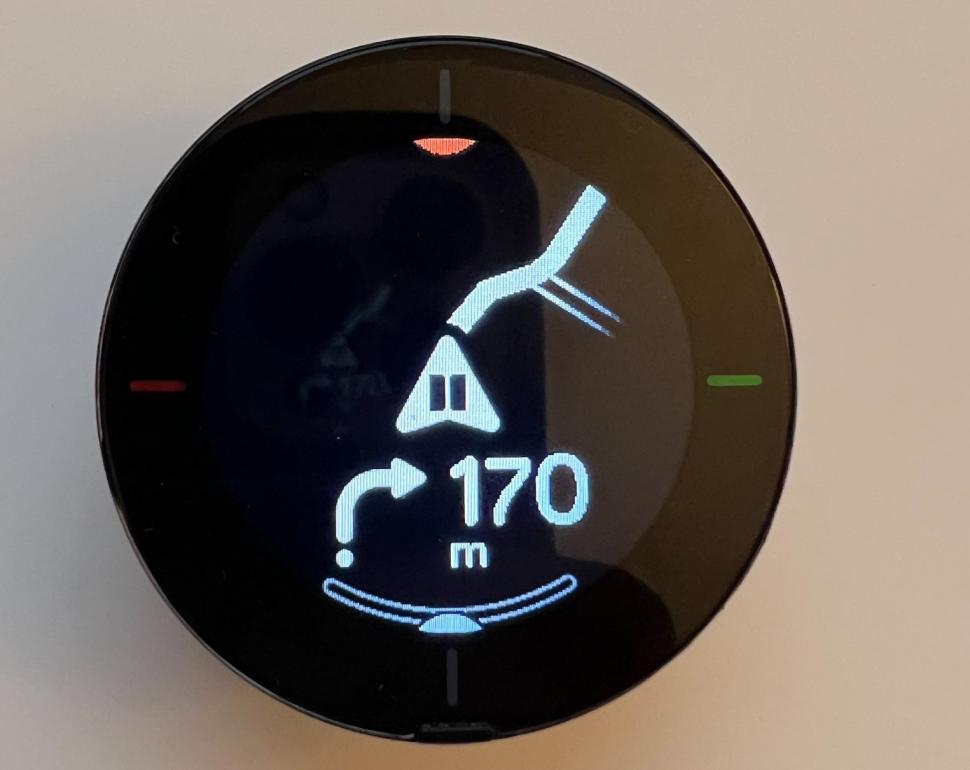
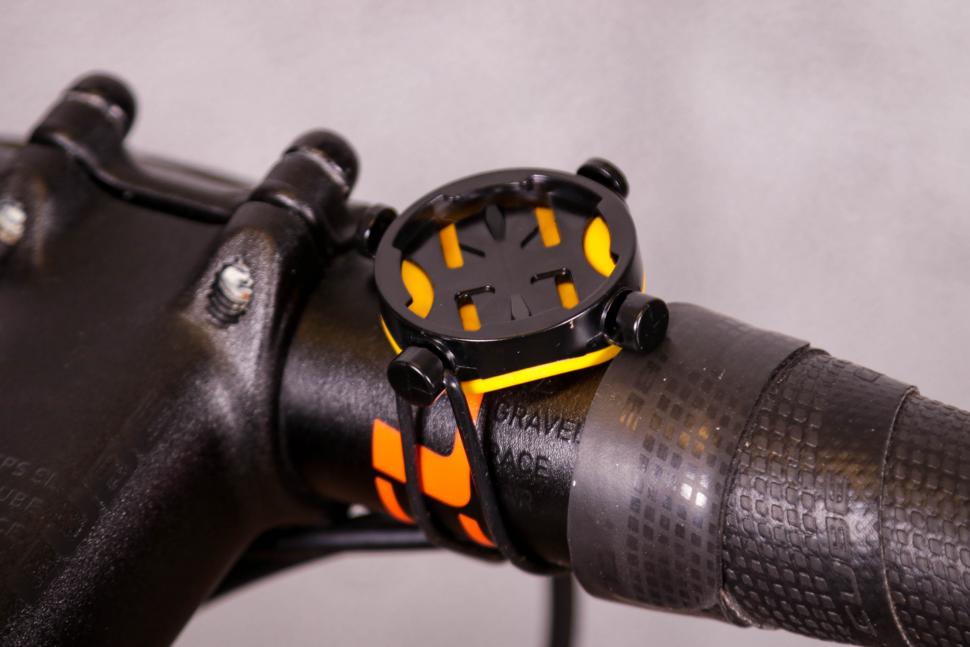
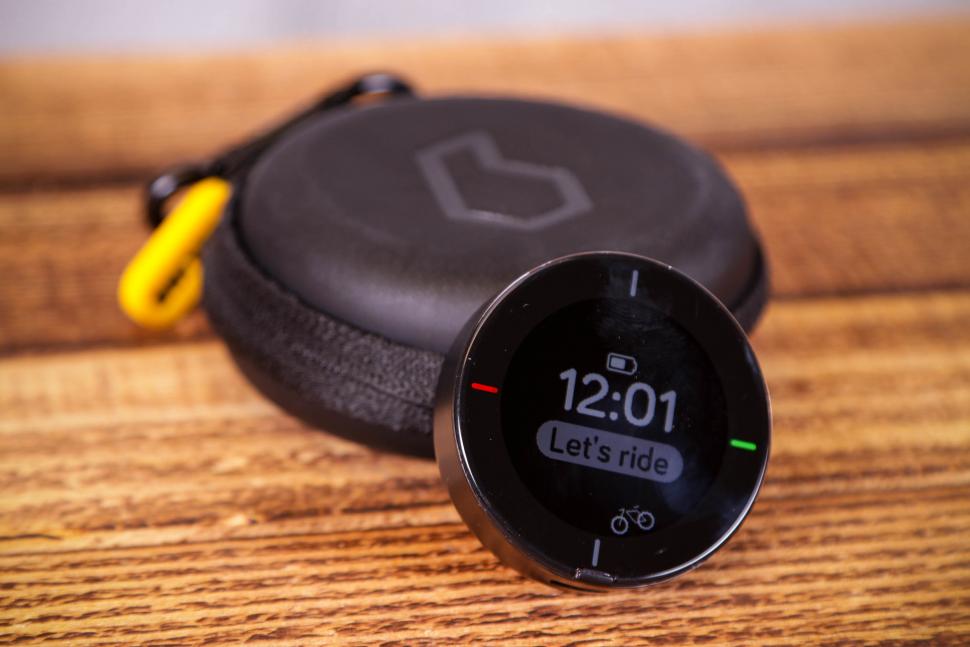
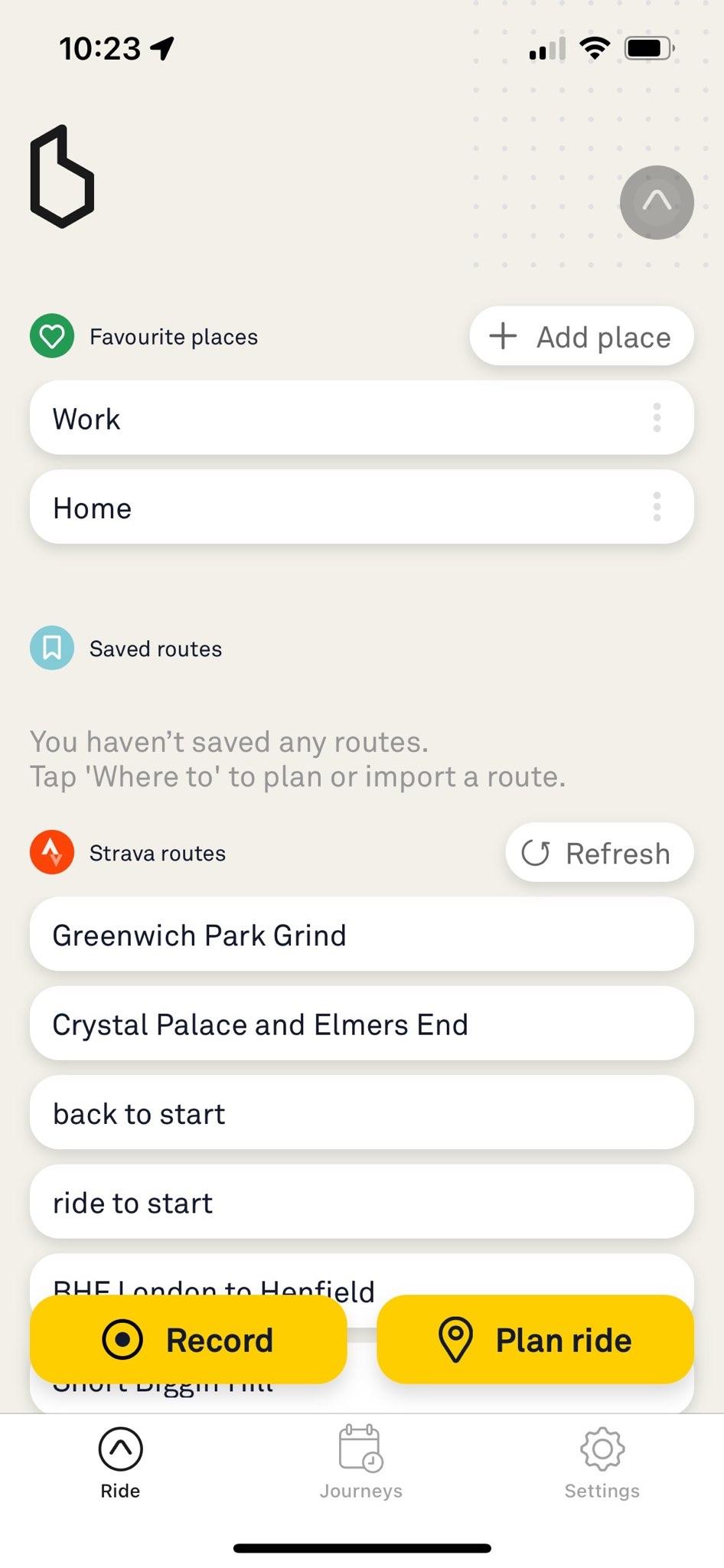
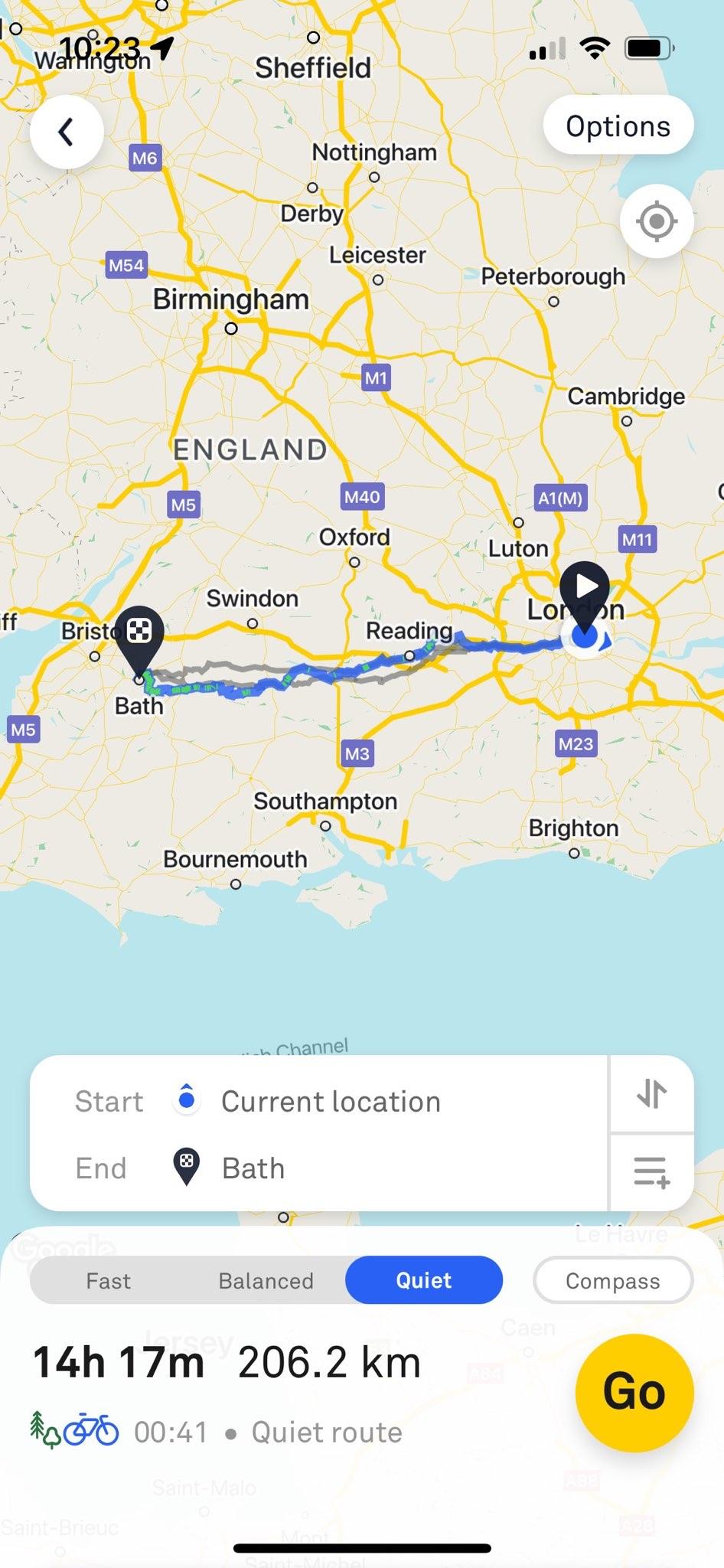
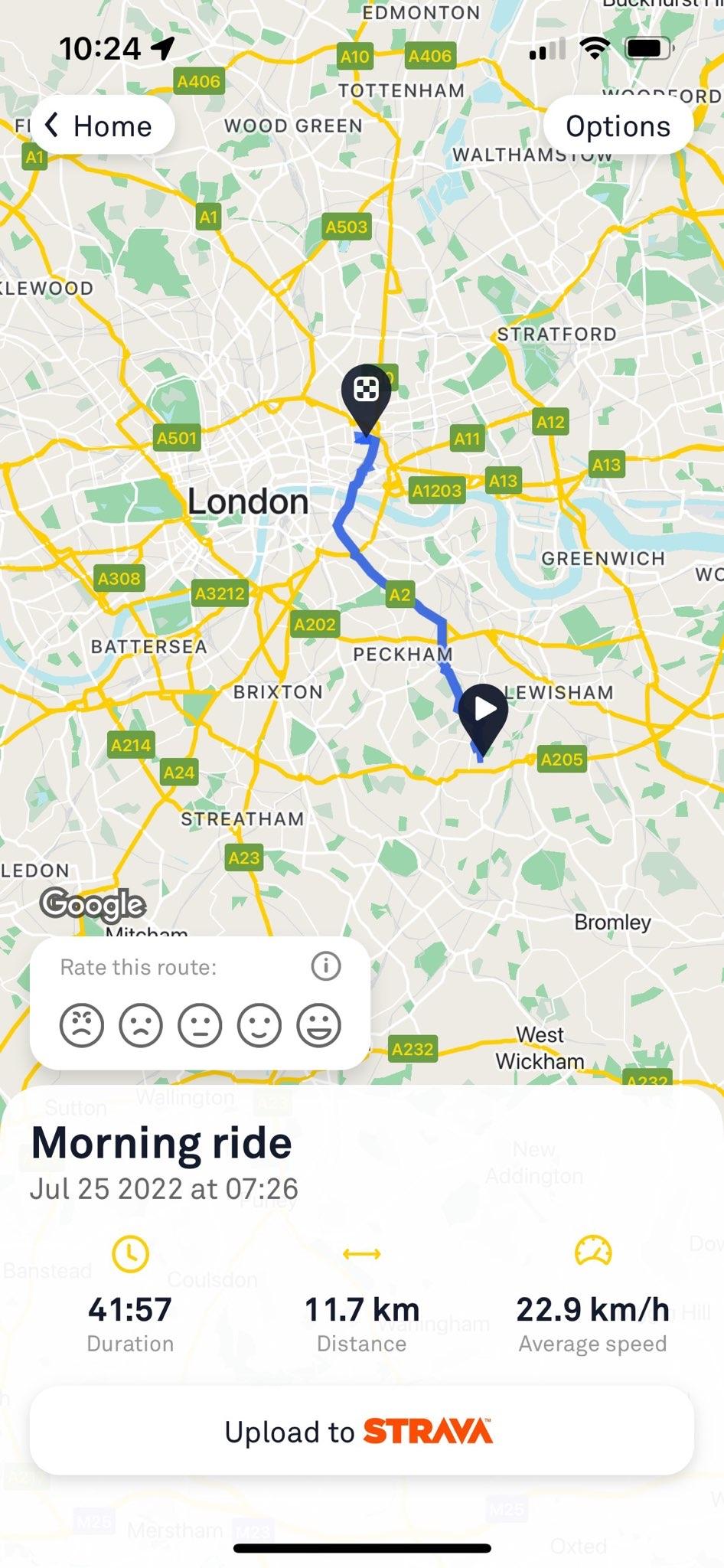








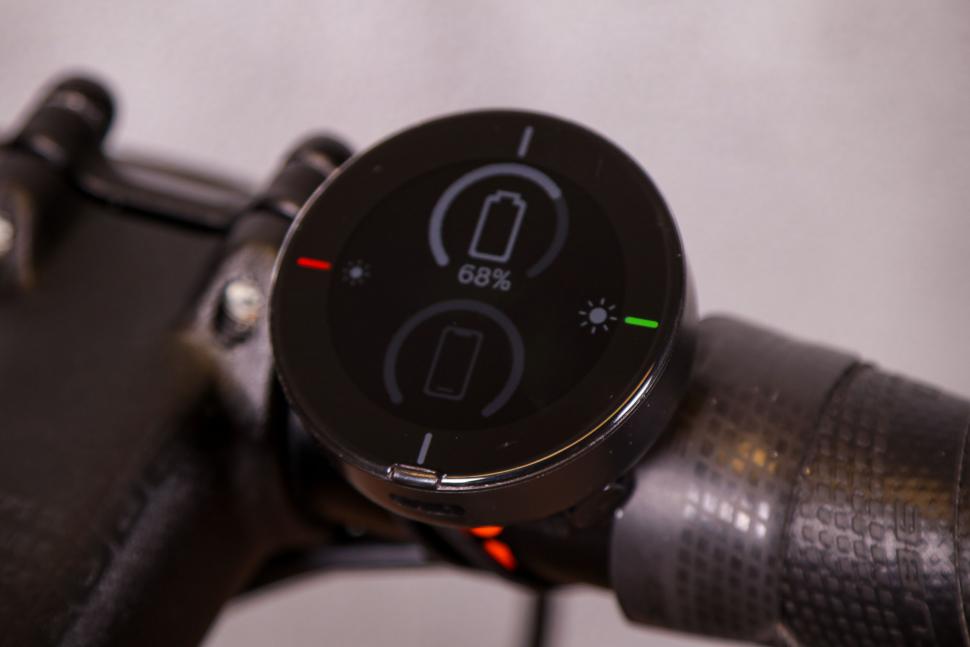
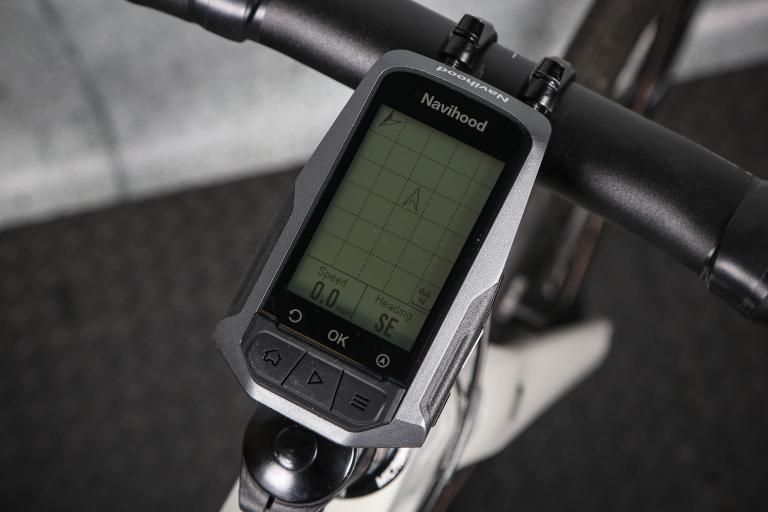

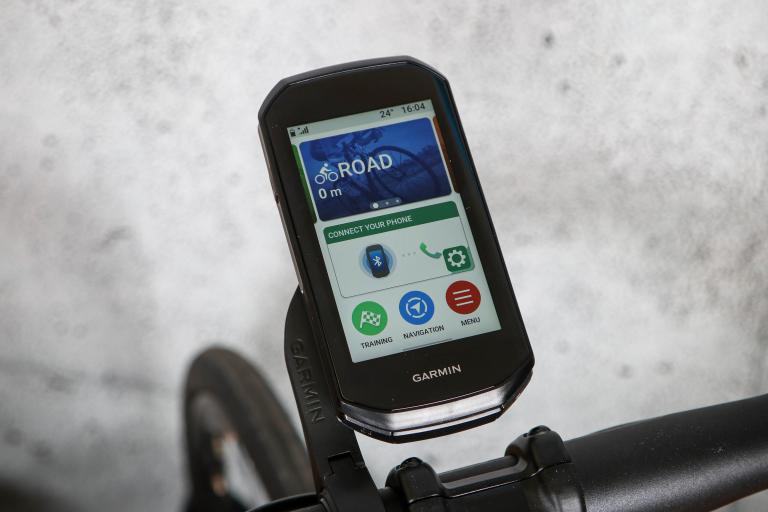
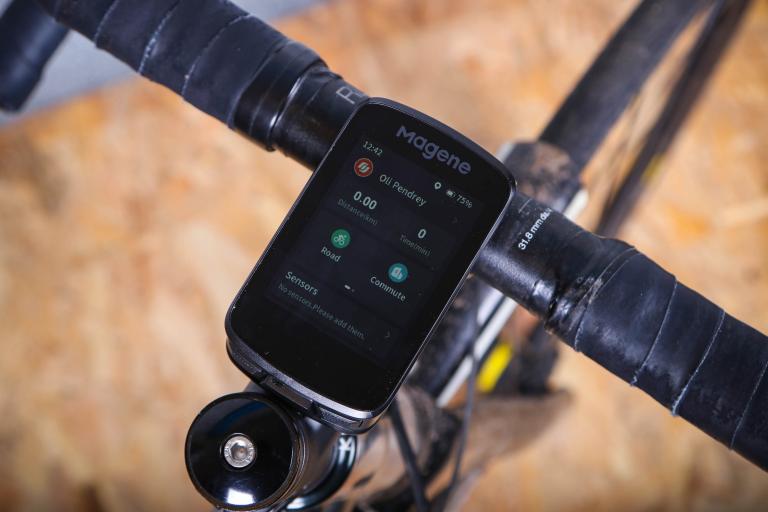
Add new comment
6 comments
I had one of these, and it died after using for 15 mins in the rain. Beeline just shrugged their shoulders. Useless item. Do not buy.
I love mine. New version is a big improvement on the original. If I know where I'm going I use it as a back up for the inevitable Strava fail. If I don't the navigation is great. You can import Strava/gpx routes into the app and off you go. Only bit I'm not sure is whether the open-to-the-elements charging socket is waterproof. So added a bit of tape. Great thing for the price tho.
This looks like it might be just the thing for my cargo bike. Can we have some photos (or, even better, videos) of it doing some navigating please?
Even Beeline's website is short on images.
Seeing as this is a device for navigation, would it not be an idea to include some photos of it, errr....navigating? All I see is photos of the time and battery level. I clicked through the 10 slides as well, nothing there either.
They're on their way...
I had previously dismissed this device as I didn't want to splash out on the hardware just to find out the routing didn't suit me.
BUT - it appears you can download and use the app for navigation, using the display on your phone instead of the hardware, for free!
So, you can try out the interface and the routing without financial risk, just using your phone.
You can also upload .GPX files to follow if you wanted to do your routing in a different app.
iPhone App / Android App